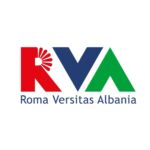Advanced Legal Education
Advanced Legal Education of Community and Health Mediators – From theory to practice.
Using a core of up to six paralegals from the community and health mediators cohort, the project’s overall goals were to increase vulnerable groups’ access to free legal tools, increase public awareness of the legal system, and offer them with useful information about human rights provisions and the court system. To lessen the disparity in these groups’ access to the justice system, legal-based institutions, law enforcement, decision-makers, and the court system should engage and communicate with vulnerable populations more frequently. Additionally, encourage and make use of the judiciary’s collective cases, advocacy campaigns, strategic litigation, and free legal tools to improve responsiveness and accountability as well as to foster trust between duty bearers and rights holders. Form alliances with three local organisations led by Roma people and bolster collaboration with equality agencies and governmental authorities at the municipal, state, and federal levels. Finally, submit at least six collective cases to the legal system, independent institutions, and equality agencies in order to encourage strategic litigation and group complaints.
It started with two information sessions with the Roma Versitas Albania alumni network, local organisations in the targeted areas, and past beneficiaries of the project, The Legal Education of the Roma Students, Community and Health Mediators to Facilitate Access to Justice for their Communities, in accordance with the project application framework. Each of the eight participants in the sessions included previous beneficiaries. The objective was to inform a larger audience about the project’s goals, vulnerable groups’ access to independent institutions, the creation of a student module that will include twelve lectures on human rights, collective power, and community mobilisation, and to extend an invitation to those who would be interested in participating in the project. We also launched a call for applications at the same time, which was posted on the websites of Roma Versitas Albania and the relevant social media platforms.
Twelve lectors from organisations such the Roma Women Rights Centre, the Commissioner for Protection from Discrimination, the Albanian Consumer Centre, and experts for the advanced training were chosen and invited. We invited the trainers from the prior project to address the themes through more advanced lenses and bring displays to the participants because we had developed a dependable practise from the previous project and produced a practical curriculum. The training covered topics such as the Ombudsman’s office, the Commissioner for Protection from Discrimination’s office, the right to information, Acts and Administrative Appeal, Public Health Institution, Albanian consumer rights, primary and secondary legal aid, human rights monitoring, gender equality, and more. Using this approach helped the participants gain both theoretical and practical knowledge on the topics. We also invited trainers to speak on subjects ranging from the justice system to pre-legal personnel. Along with having access to a wealth of legal knowledge, the students developed enduring relationships with important organisations.
Advanced and customised training sessions were held on relevant subjects that impact and impede vulnerable groups’ access to public services and the legal system. The training primarily covered protocol, solutions-driven approaches, legal procedures, and the competencies of pertinent institutions in terms of strategic design for interventions. In the course of carrying out the project, we also hired a licenced attorney to conduct further administrative procedures to address issues and to provide advanced training on subjects already discovered in the field and reported during humanitarian activities in the target locations.
Accreditation of six paralegals from the community and health mediator group-five women and one man. Paralegals were qualified and trained to offer vulnerable groups enhanced primary support, including social service and court system access counselling and help with court system and public service access procedures.
Accomplishing up to twelve help-desk tasks in the designated regions of Rrogozhina, Berat, and Fier. Once a week, two chosen paralegals were assigned to a local NGO or institution, where they coordinated community counselling sessions at the reception. Strategic lawsuits and strategic interventions were filtered via these actions.
There were six awareness workshops on property and housing, the environment and infrastructure, divorce procedures, children’s rights, and access to healthcare. Reaching up to 100 individuals who have a direct interest in the themes.
Have been coordinated six brief grassroots projects with the assistance of paralegals. The duration of short-term activities ranges from one week to three months in order to address shared concerns and activities as a group. Through the “status-quo” being altered, the brief initiative will have a positive impact on the neighbourhood or locality.
We were able to attain the following outcomes in accordance with the call’s interventions:
- The group of health 8 (6 females and 2 males) community mediators and paralegals trained in the previous UNDP-funded project for vulnerable groups in Rrogozhina, Berat, and Fier
- Organised twelve advanced training sessions on legal aid procedures and protocols.
- The community and health mediator group certified six paralegals, who were eligible to offer advanced primary legal help to vulnerable individual groups. A qualified attorney authorised a set of guidelines and criteria that were discussed with the donor before being certified. For open days, twelve support desks were set up with women, people with impairments, and vulnerable groups from Roma minorities in the target areas. The purpose of the help-desk’ activity was to connect with four to eight people.
- In the three target locations, 144 cases/complaints were registered. Arranged six informational awareness seminars on issues like property and housing, the environment and infrastructure, divorce laws and children’s rights, and access to universal health care.
- Six short-term community projects with paralegal assistance were arranged. Advocacy campaigns, collective complaints, and collective appeals to public authorities to allow the target group to fulfil their rights are examples of short-term activities.
- In the Roma language, Roma Versitas Albania released video podcasts on crucial subjects pertaining to access to services and justice on Facebook and YouTube. Furthermore, thirty activities were posted on the social media platform Roma Versitas Albania.

